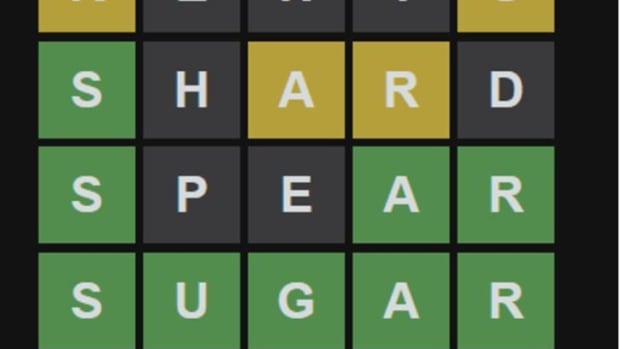Wordle is definitely no flash in the pan.
The New York Times on Friday marked its 1,000th daily offering of the its web-based word game, which took off in popularity in October 2021 — even before the company bought it from software engineer Josh Wardle from Brooklyn, N.Y., in early 2022, for a price the Times says was in “the low-seven figures.”
The once-a-day online puzzle has become a daily ritual for language sleuths who try to figure out the secret five-letter word in just six guesses.
The Times has promised the game will remain free, and millions of people continue to test their word knowledge each day. But the company has also been trying to fight back against knockoffs.
The Times has been sending takedown notices to the creators of some of the Wordle-inspired games, citing copyright infringement, and is turning its focus on the website GitHub, where developers publicly share their code. The news company first got in touch with the website in early January in its campaign to stop copycats.
“We review all DMCA (Digital Millennium Copyright Act) takedown requests thoroughly,” GitHub said in a statement emailed to CBC News on Friday.
“If we find a request to be sufficiently detailed, we post it in our public repository and give the affected user(s) an opportunity to make changes before processing.”
6:19One year of Wordle-domination, with David Shariatmadari
It’s been a year since the New York Times bought Wordle. Writer and game developer David Shariatmadari helps Elamin look back on the game’s success as well as preview a new brain teaser for word sleuths.
In a statement, the Times said it has notified hundreds of people via GitHub about the copycats. The company said it has no issue with people creating similar word games that do not infringe on copyrighted, but it took action against one user on the software developer platform who created a “Wordle clone” project that included instructions on how to create “a knockoff version” of Wordle, and against others who shared his code.
Before Wordle came to the Times’s attention, it was already attracting millions of daily players during the pandemic.
Shared on social media
“Especially over the pandemic, we found ourselves in isolation, and kind of struggling for ways to connect with other people,” said Eric Akaoka of Toronto, a product designer in the tech industry. He works from home, plays Wordle, and is part of a group chat that shares the outcomes.
He said he has played 747 games so far and has a winning streak of 119, with an overall win percentage of 99 per cent. The game keeps track of a player’s statistics over time.
Akaoka said with pandemic news creating fear and uncertainty, “it was nice to settle in with a small group of friends and have a very low-stakes thing to go through together and have a shared point of reference with people.”
For millions around the world, Wordle is now part of their daily routine. But that rapid rise in popularity during the pandemic is also enticing copycat apps.
Wordle typically takes anywhere from 30 seconds to five minutes to play, so it’s a “nice little healthy diversion,” allowing for a brief escape from life and a sense of accomplishment, Akoaka told CBC News.
One of the game’s strengths is its daily format.
“You know exactly what to expect, and you can’t really get thrown for a loop by this challenge, and it makes the ritual a lot more fulfilling and more enjoyable,” he said.
Some notices for similar layout and colour schemes
In the early days, Wordle went viral due to a simple feature: Allowing players, known as Wordlers, to share results on social media or with friends in a group chat, and it would format a little picture of what the solved Wordle looked like, using emojis and little green and yellow squares.
The New York Times said copyright infringement of the game would apply to any World-inspired game with a similar layout and colour scheme.
DMCA notices act as a tool for copyright holders to get content that infringes on their intellectual property taken down. Impacted users can still fight to keep what they published up, but that opens up the possibility for costly litigation. As a result, many don’t dispute takedowns.
Robert Brauneis, a professor of intellectual property law at George Washington University’s Law School, said that a German-language Wordle spinoff that he and his wife used to play, which was once found at “wordle.at,” appeared to have been removed in the last week or two — suggesting that it may have also received a takedown notice.
As of Monday, a message on wordle.at’s site, now named “Gridgames,” says the game was voluntarily removed after receiving a “complaint with reference to U.S. trademark law.”


